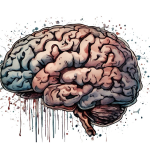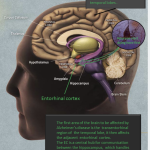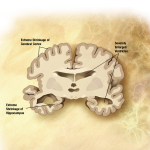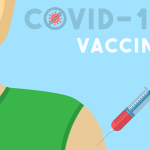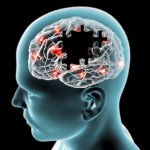The concept of a “leaky” brain is an enigma, the fortress of our brain, seemingly protected by the blood-brain barrier now disrupted. However, to understand whether a breach has altered our cognitive function we need to better understand our protector.
Alzheimer's disease
β‐Hydroxy‐β‐methylbutyrate, aka, HMB, is a very safe supplement used to build muscle. But a group has recently demonstrated that HMB may also have properties to mitigate the symptoms of Alzheimer's in mouse models of AD. Could this be a useful drug in protecting the brains from the ravages of this awful disease?
The drug, Leqembi, does not reverse symptoms. In patients in the early stages of Alzheimer's disease, it slowed cognitive and functional decline somewhat compared with placebo. The FDA’s approval of Leqembi is not the end of the Alzheimer’s journey, but it could be a way station.
Editors at the journal Nature Medicine recently asked researchers and public health experts from around the world to identify clinical trials that will shape medicine in 2023. They came up with a varied list of candidates, from cervical and prostate cancer screening protocols to gene therapy for muscular dystrophy and new drugs for Parkinson’s disease and Alzheimer’s disease. The selections are arbitrary and idiosyncratic, but they are interesting, nevertheless.
The FDA actively – and unusually – collaborated with a biopharmaceutical company to pursue the approval of an Alzheimer's Disease drug, despite many questions about its efficacy and astronomical price. A congressional investigation found that the FDA’s approval process was “rife with irregularities" and that the agency’s actions “raise serious concerns about FDA’s lapses in protocol.”
At least 10% of the U.S. population is currently taking a statin to help lower cholesterol. But can statins help prevent dementia? More importantly, can these same statins accelerate dementia? And how can we explain how statins are responsible for such dramatically different responses? Let's take a look.
Biogen's latest effort at an Alzheimer's Disease treatment has been withdrawn. Treating biomarkers, measurable substances associated with a disease -- in this case, plaques -- will not work.
Science and medicine often move in small, incremental steps. A framework for researchers studying Alzheimer's Disease won't make the evening news, but it is a victory in a much longer battle. We should pause to acknowledge the quiet work of our scientists and clinicians.
One type of malady that most people really hope to avoid is Alzheimer's Disease. As the population ages, this disorder and similar ills will likely become more common. While much research has been devoted to figuring out how to forestall these problems, recent studies indicate we still have a long way to go to get there.
Death rates for Alzheimer's Disease have risen 55% between 1999 and 2014. That's according to the Centers for Disease Control and Prevention’s latest Morbidity and Mortality Weekly Report. Here are the reasons why this is occurring, and the trend's implications.
The key to preventing Alzheimer's Disease may lie in the North Atlantic island of Iceland. Its relatively homogeneous population has been a treasure trove for genetic researchers looking for mutated genes that either increase or decrease the disease's risk.
Our views on egg consumption — at least as far as heart disease goes — have changed dramatically in the past decade. They're no longer seen as a dietary villain. A new study suggests that not only do eggs not contribute dementia, which had been suggested by some animal studies, they may also be linked to a lower risk of such ailments.
